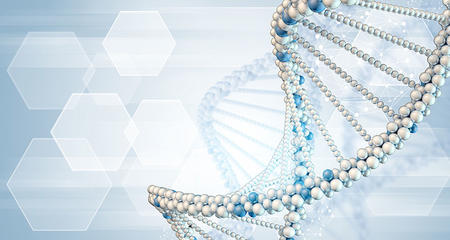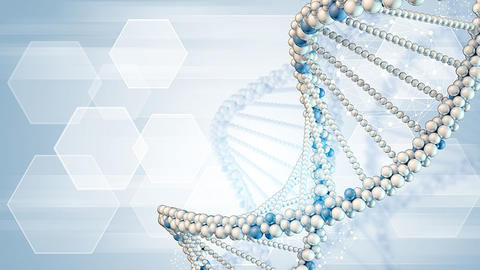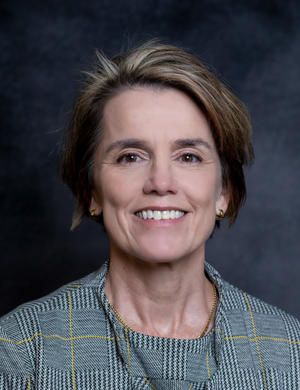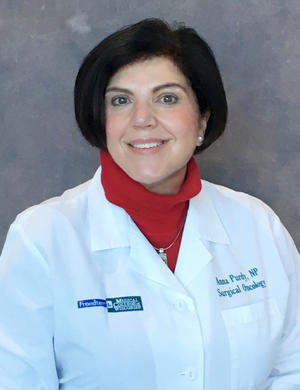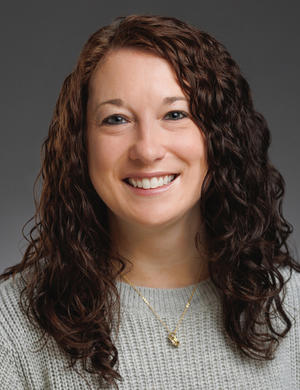A close relative was just diagnosed with cancer, or maybe you noticed that you have a few relatives with cancer in your extended family. You might wonder, "Is cancer hereditary? Does cancer run in my family?" The Hereditary Cancer Risk Clinic is here to help you get answers and make a plan.
What Is Hereditary Cancer
Cancer is a common disease, affecting about 1 in 3 people in the United States (source: cancer.org). A small subset of individuals face higher odds due to a strong family history of cancer which may be related to a cancer gene inherited from a parent.
Hereditary cancer syndromes are found in families where cancer affects multiple family members in patterns that can all be explained by a single abnormal cancer gene. Some families have many members affected by cancer but the pattern is less clear. These may represent a familial cancer syndrome. Only about 5% to 10% of cancer cases are caused by an inherited genetic mutation. If you have an identified cancer genetic mutation, your parents, siblings and children have a 50% risk of carrying the same mutation.
Some indicators of hereditary cancer are:
- Earlier than expected age at diagnosis
- Multiple generations with cancer
- Multiple cancers in one generation
- Rare types of cancer
- Bilateral presence of cancer — appearing in both paired organs, such as lungs, kidneys, breasts, ovaries, testes and eyes
- Tumors characteristic of a specific syndrome
The Hereditary Cancer Risk Clinic is a centralized medical home for patients to be screened for multiple cancers. There is increasing awareness of the role inherited mutations in cancer genes play in cancer risk. Some patients may qualify for surgical or medical therapies to reduce their risks of developing a future cancer. These services can all be coordinated by our care team.
Types of Cancers That Are Hereditary
Inherited mutations may raise the risk of developing more than one kind of cancer. A genetic mutation resulting in breast cancer may also increase the risk of developing ovarian and pancreatic cancers. A man with a strong family history of prostate cancer may also have a genetic predisposition for pancreatic or even male breast cancer. When looking at your family history, look not only at the number of family members with cancer, but also the types of cancer — including, but not limited to:
- Breast cancer
- Colon cancer
- Prostate cancer
- Ovarian cancer
- Uterine cancer
- Melanoma (a type of skin cancer)
- Pancreatic cancer
What to Expect at the Hereditary Cancer Risk Clinic
We offer the following services to determine your cancer risk and provide care as needed.
- Cancer genetic testing
- Counseling about genetic test results
- Cancer screenings
- Diagnostic imaging
- Lab tests
- Recommendations for preventive lifestyle modification
- Referral to appropriate specialists if a new cancer is detected or risk reduction treatment is needed
- Recommendations for risk reduction that include medical therapies and/or prophylactic surgeries
- Supportive counseling and social work services if you need help coping with a new diagnosis
At your pre-test consultation, you will meet with a genetic counselor to:
- Talk about your concerns regarding cancer in your family and your motivation to learn more.
- Document your cancer history and your family's cancer history.
- Explain the principles of hereditary and cancer genetics
- Facilitate informed consent and initiate testing (if needed).
After we interpret your genetic test results, we provide personalized risk management recommendations and resources. For instance, for moderate risk, we may recommend more frequent screenings. In high-risk situations, we may provide information on prophylactic surgeries or medications.
You will need to communicate results and recommendations with at-risk family members. We will help you facilitate and create a plan for that.
Preparing for Your Appointment
We will need to review your entire medical history — conditions, treatments and complications. We will also want to document your family's medical history, so talk to your parents and, if possible grandparents, about cancer and conditions among their siblings, cousins, nieces and nephews. Note if anyone in your family had genetic testing and what the results were.
Benefits of Genetic Testing for Cancers
A cancer predisposition in your family is not something to fear. Genetic testing for cancer empowers you with answers and facts. We offer genetic testing when:
- There is a reasonable likelihood of identifying a cancer predisposition mutation
- There is a genetic test available that can be adequately interpreted
- The results will influence the patient and their family's health care
- The patient needs information to feel empowered in health care decisions
We can use the results to come up with a plan to watch for and prevent cancer. We may recommend extra screening, special testing and lifestyle modifications to reduce the risk that comes with having a genetic cancer mutation.
The goal is to detect and treat cancer at an earlier stage. Early detection and treatment improves the chance of survival and also affects the patient's quality of life. Knowing about and monitoring risks helps us work toward the best possible outcome for you and your family.
Who Is Eligible for Treatment at the Hereditary Cancer Risk Clinic
The clinic serves three groups of patients.
- Those with a known genetic risk factor
- Those who do not have cancer, but do have a family member with a genetic mutation
- Those who are not aware of an inherited mutation but have an extensive family history of cancer
Any cancer patient with concerns about hereditary risk can be referred to or personally contact the Hereditary Cancer Risk Clinic.
Why Visit the Hereditary Cancer Risk Clinic
Our specialists have advanced training and experience in diagnosing and managing high-risk patients. They create individualized plans to prevent cancer or diagnose it promptly to ensure early intervention and the best possible patient outcomes.
Everything we do is personalized to you — based on what we have learned about you, your family, your medical history and your environment. We offer expert follow-up and counseling that you do not get when you send a tissue sample to an address on a website. We have a conversation with you to make sure you understand your results, get the care that is right for you and take steps to care for your family.
Additionally, our team provides a valuable connection to clinical trials designed to enhance the understanding and knowledge of novel biomarkers to explore risk stratification approaches and risk reduction strategies and to test behavioral and preventive interventions that can be of value to you.
Our Team
Recognized as High Performing by U.S. News & World Report
Froedtert Hospital is recognized by U.S. News & World Report as high performing in three adult specialties and 16 procedures and conditions, including cancer.
Blogs, Patient Stories, Videos And Classes





